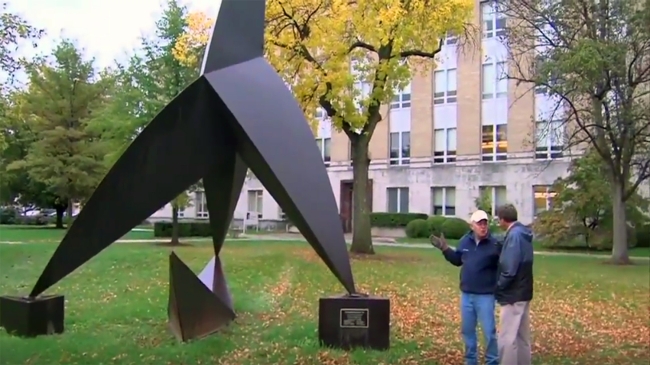You have /5 articles left.
Sign up for a free account or log in.

Western Illinois University
When Western Illinois University’s Board of Trustees on Friday approved cutting four degree programs as majors and modifying four more, it looked like another chapter of belt tightening at a cash-strapped public institution suffering collateral damage amid state budget difficulties.
But administrators didn’t come out and blame finances. The programs arrived on the chopping block because they exhibited declining or low enrollment, Western Illinois leaders said -- not because the university needed to find millions of dollars in savings to make up for an expected plunge in state funding.
Some at the university are skeptical cost cutting wasn’t an ultimate driver at an institution planning to slash $24.7 million (10 percent) from its budget in 2017. And they’re openly questioning the process the university used to identify programs to be eliminated or changed. Coming after months of struggles over previously announced layoffs, the program changes reflect to faculty members a significant de-emphasis on the liberal arts.
Major degree programs to be cut are African-American studies, philosophy, religious studies and women’s studies. Plans are to phase out the majors so that currently enrolled students can complete their degrees. The university also plans to allow students to continue to minor in those areas, and it plans to still offer some classes in the topics for curriculum diversity.
Major degree programs spared the ax are bilingual/bicultural education, public health, geography and musical theater. They will be modified or reorganized, however, after an Academic Program Elimination Review Committee recommended reviewing them in two years to see if they can improve metrics like costs, enrollment and graduation rates.
Some faculty members worry the eliminations reflect a university more focused on meeting a metric favored by state officials and less about creating well-rounded students. Prominent among critics is Christopher Pynes, a professor of philosophy and chair of the Faculty Senate. The programs were reviewed because they were flagged under a state reporting requirement for programs with low enrollments, he said. But Western Illinois did not have to eliminate them.
“What’s happened is the administration sees this legal reporting requirement as a mandate for how we have to run the university,” he said. “It’s not a mandate. It’s a legal reporting standard. We just have to report.”
Departments spent months putting together proposals on how to reorganize and what to do to boost enrollment, Pynes said. Philosophy went from about 16 majors to 26 in two semesters this year, he said.
Pynes also questioned the way majors are counted, pointing out that students listing it as their second major don’t tally as philosophy majors. That means the philosophy department’s reach goes beyond the number of students counted, he said. Also, the Western Illinois College of Education and Human Services, College of Business and Technology, Centennial Honors College, and College of Arts and Sciences all have majors requiring philosophy courses.
Cutting the philosophy major cuts at the heart of the university, Pynes said. He argued that universities are more than a training ground for workers.
“We’re not making tires,” Pynes said. “We’re providing students an educational experience at a university, and they need to have access to the things that universities have, like philosophy departments.”
That gets at tension over the direction of Western Illinois. A strategic plan supplement trustees approved Friday could be seen as pointing the university more toward applied education. A description of the plan in board documents says it will position the university for the long-term by stabilizing enrollment, decreasing reliance on state funding and increasing business acumen, among other things.
“We will continue to provide, from day one of the student’s experience, high-impact, applied learning experiences inside and outside of the classroom, leading to student employment and/or graduate school placement upon graduation,” it said.
But Western Illinois has always been a regional state university that can keep its foundation in liberal arts while attracting students to majors with clear career pathways, said Kathleen Neumann, interim provost and academic vice president. In that light, the university could be seen less as changing its direction and more as playing toward its strengths.
The university is fighting an enrollment decline driven in large part by demographics and a falling number of high school graduates, Neumann said. The decline was roughly 11 percent over five years, to 11,094 as of the fall of 2015, she said. But enrollment has been dropping much more slowly in some majors with obvious career pathways, like law enforcement, which has dropped just 2 percent in the same time frame, to just over 1,600.
Those numbers dwarf majors in the degree programs being cut. African-American studies had 13 declared majors in 2015-16, Neumann said. Philosophy had 17, religious studies had five and women’s studies had seven.
The planned changes will allow the university to keep educating students in disciplines like philosophy, she said.
“We are not eliminating minors,” Neumann said. “We are not eliminating the courses or those content areas being offered in general education. It’s just that in these particular majors, we have very low student enrollment.”
Talk about Western Illinois programs go back years, Neumann said.
“We have repeatedly been having these conversations about how we can no longer be all things to all people,” she said. “We’re going to have to be very mindful of not only our fiscal resources but our human resources going forward.”
Neumann acknowledged that the review process flagging the degree programs does not require any to be cut. But the university is charged with being a good steward of its resources, and the Illinois Board of Higher Education put the review process in place.
“IBHE will not tell us we have to close the programs,” she said. “But on the other hand, they report to our legislative body, to which we are responsible to report to.”
Asked about savings from the program cuts, Neumann said it would be premature to give any estimates. Contracts prohibit affected faculty members from being laid off in the upcoming year, she said.
Yet it is clear that Western Illinois is under financial pressure. Its preliminary spending plan for 2017 calls for a $221.3 million operating budget that anticipates a 20 percent cut in state higher education funding from 2015 levels. That reflected a February proposal from Governor Bruce Rauner, which budget documents indicate was the best-known estimate available for the state as its prolonged budget stalemate continues.
The $221.3 million total operating budget would be down from $248 million in the 2015 fiscal year. It anticipates state appropriations falling from $52.6 million to $41.2 million. In 2014, total state appropriations were $52.8 million.
Western Illinois has clearly been in cost-cutting mode, announcing rounds of faculty and staff cuts, including 110 noninstructional staff layoffs made public in April.
But the argument can be made that the degree programs approved to be cut Friday were generating surpluses, said William Thompson, president of Local 4100 of the University Professionals of Illinois at Western Illinois. Factoring in total credit hour production and using conservative revenue estimates, he calculated the women’s studies program as having a profit of about $240,000 in the 2015 fiscal year. Philosophy and religious studies -- which would have been combined under a proposal -- would have generated a surplus of more than $350,000, and African-American studies would have posted a small surplus of roughly $6,600.
The argument can, however, be made that eliminating the majors could allow for staff reductions or reassignments, further lowering costs and improving the bottom line, Thompson acknowledged. While the union contract says faculty will get a year of employment after the program cuts, money that had been going to faculty members could in theory be routed somewhere else after that year.
“That would free up salary,” Thompson said. “They’re going to reinvest in other areas that they think have a future or are presently growing.”
Thompson listed other objections to the changes, saying an enormous amount of time was dedicated to creating plans for the majors’ future, only to have those plans nixed before they were given time to work. And the union takes issue with the way the administration has used provisions in its collective bargaining agreement, Thompson said. The parties are going to arbitration over the issue.
“It doesn’t allow you to make surgical cuts,” Thompson said. “You can’t just reach in and carve out a so-called program from a department.”
The impact of the majors being cut can go beyond the balance sheet, Thompson said. He worries the administration does not see things that way.
“They’re only looking at the programs in a very narrow way,” Thompson said. “Which they’ve been told to do by their bureaucratic masters.”




